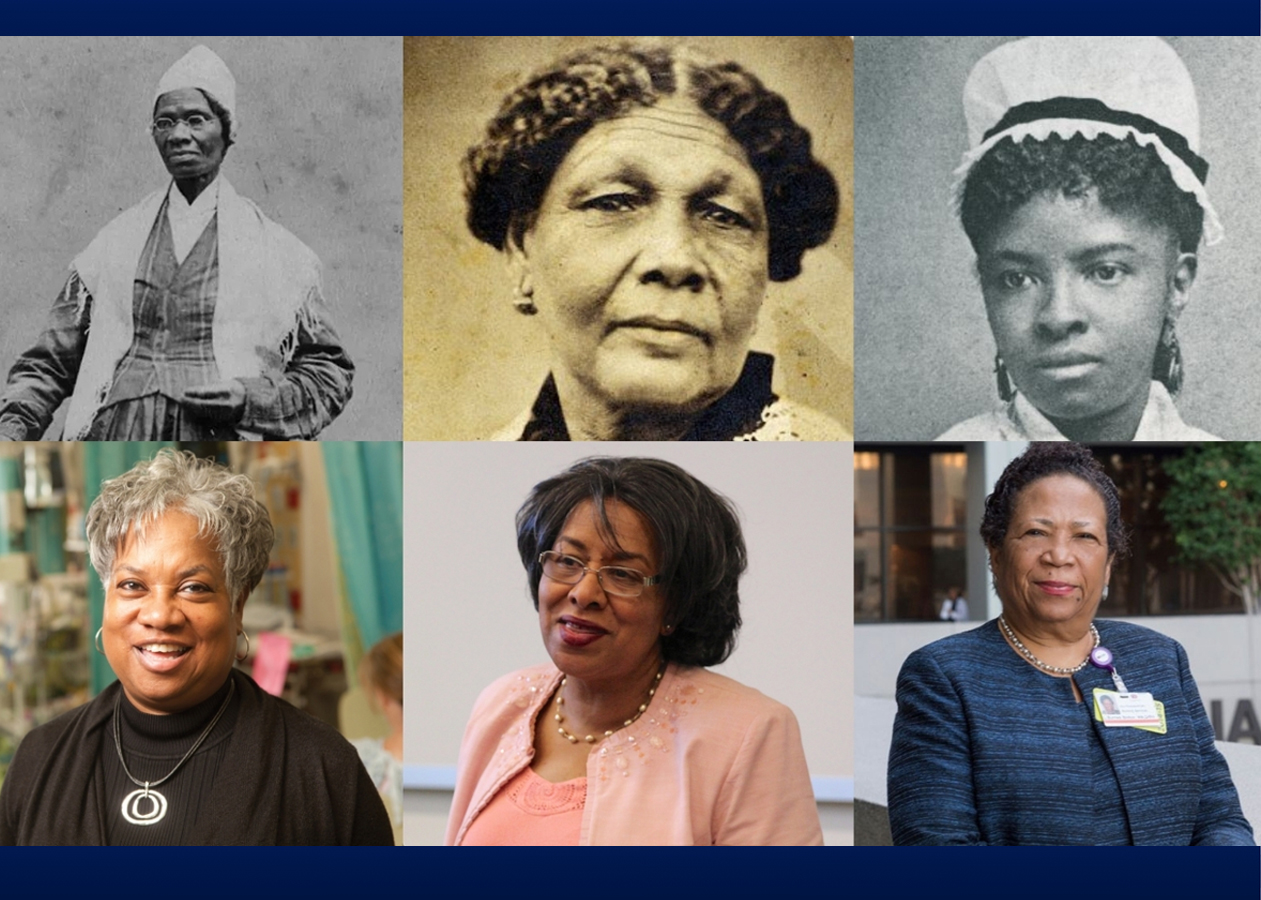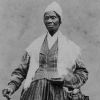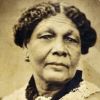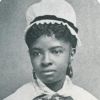Black Leaders and Innovators in Nursing, at Duke and Beyond
As we celebrate Black History Month, we highlight a few Black nurse leaders who have shaped the nursing profession as a whole and at Duke University School of Nursing.

Studies have shown that patients often have better outcomes when cared for by a healthcare team that reflects their own backgrounds and experiences. Representation in nursing improves healthcare outcomes and builds trust between patients and healthcare providers.
As we celebrate Black History Month, this is an opportunity to recognize the significant contributions of Black nurse leaders who have shaped the nursing profession. Their stories are reminders of the importance of inclusion and representation in nursing. These leaders have helped break barriers and paved the way for future generations of nurses.
By honoring these leaders, we not only celebrate their achievements but also inspire current and future nurses to continue their legacy of excellence and advocacy:
Sojourner Truth (c. 1797-1883): An abolitionist and women's rights activist who also served as a nurse while being an enslaved person. She is renowned for her powerful advocacy for the rights of African Americans and women.
Mary Seacole (1805-1881): A Jamaican-born nurse who provided care and sustenance to British soldiers during the Crimean War. She established the "British Hotel" near the front lines.
Mary Eliza Mahoney (1845-1926): The first African American to graduate from an American school of nursing in 1879. She co-founded the National Association of Colored Graduate Nurses (NACGN) in 1908.
Barbara Nichols: The first Black president of the American Nurses Association (ANA), serving two terms from 1978 to 1982. Her leadership helped pave the way for greater representation and inclusion within the nursing profession.
Dr. Beverly Malone: The second Black president of the ANA, and the President and CEO of the National League for Nursing (NLN) since 2007. She has made significant contributions to nursing education, policy, and practice.
Black nurse leaders have also helped shape the history of Duke University School of Nursing, as well as its present:
Donna Allen Harris: The first African American to graduate from Duke University School of Nursing in 1971. Her career has spanned various roles in nursing, including public health, research, and education.
Dr. Dorothy Powell: Founded the School’s Office of Global and Community Health Initiatives (OGACHI) in 2006, serving as Associate Dean for Global Health and Community Initiatives until July 2014. Her work has aimed to reduce health disparities in Durham and in regions like the Caribbean, Central American, Africa, and parts of Asia.
Dr. Marva Price: Became the first Black faculty member hired at Duke University School of Nursing in 1996. Price has more than 45 years of nurse practitioner practice in North Carolina and she has been a leading voice for advanced practice nursing and public health policy. She was the program director for the family nurse practitioner specialty for five years where she mentored hundreds of students.
Dr. Linda Burnes Bolton (1948-2025): A distinguished nurse and healthcare administrator who served as the president of several high-impact professional organizations, including the American Academy of Nursing, the National Black Nurses Association, and the American Organization of Nurse Executives Board of Directors. She served on the Duke University School of Nursing (DUSON) Board of Visitors from 2006 to 2009.
Dr. Brigit Carter: The founding Associate Dean for Duke University School of Nursing’s Office of Diversity, Equity, and Inclusion (now the Office of DEIB), a position she held from 2018 to 2023. Now Professor Emerita at DUSON, she serves as the Chief Diversity, Equity, and Inclusion Officer for the American Association of Colleges in Nursing (AACN).
Despite the progress made, Black nurses are still underrepresented in the nursing profession. Black or African American nurses make up approximately 6.3% of the registered nurse (RN) workforce.[i] This is significantly lower than the 14.4% of the U.S. population that identifies as Black.[ii] Efforts to increase representation in nursing are ongoing, with the goal of creating a workforce that better reflects the communities they serve.
Duke University School of Nursing is proud to support the training of the next generation of nurse leaders. Through our commitment to advancing health equity, we aim to cultivate a learning environment that empowers all students to excel and lead in the nursing profession. By providing comprehensive education, mentorship, and opportunities for professional growth, we are working to ensure graduates are well-equipped to address the healthcare challenges of tomorrow and continue to build on the legacy of excellence established by the nurse leaders that came before them.
[i] AACN. National Workforce Survey: https://www.aacnnursing.org/news-data/fact-sheets/nursing-workforce-fact-sheet
[ii] Pew Research Center. Facts about the US Black Population. https://www.pewresearch.org/race-and-ethnicity/fact-sheet/facts-about-the-us-black-population/
Photos courtesy of Library of Congress (Sojourner Truth), Winchester College (Mary Seacole), Schomburg Center for Research in Black Culture at the New York Public Library (Mary Eliza Mahoney), Wisconsin Center for Nursing (Barbara Nichols and Linda Burnes Bolton), and the National League for Nursing (Beverly Malone).









